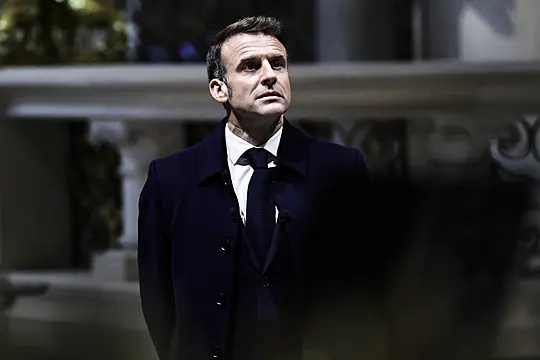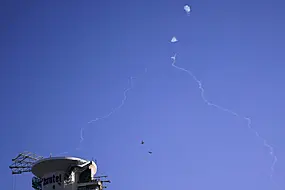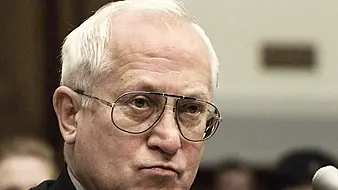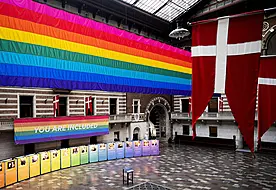French President Emmanuel Macron has vowed to stay in office until the end of his term in 2027, and said he will name a new prime minister within days, after the resignation of Michel Barnier.
Mr Macron came out fighting a day after a historic no-confidence vote at the National Assembly left France without a functioning government.
He laid the blame at the door of his opponents for bringing down Mr Barnier’s government.
He said they chose “not to do but to undo”. “They chose disorder,” he said.
The president said the far right and the far left had united in what he called “an anti-Republican front” and added: “I won’t shoulder other people’s irresponsibility.”
He said he would name a new prime minister within days, but gave no hints as to who that might be.
Earlier in the day, Mr Macron “took note” of Mr Barnier’s resignation, the Elysee presidential palace said in a statement.
Mr Barnier and other ministers will be “in charge of current affairs until the appointment of a new government”, the statement said.
The no-confidence motion passed by 331 votes in the National Assembly, and forced Mr Barnier to step down after just three months in office, making it the shortest tenure of any prime minister in modern French history.
While critical of his political opponents, in his address Mr Macron also acknowledged his own role in the chaos now shaking French politics and alarming financial markets.
He revisited his decision in June to dissolve parliament, a move which precipitated the crisis, leading to new legislative elections that produced the now hung parliament, divided between three minority blocs that do not have enough seats to govern alone and are proving largely incapable of working together – except to bring down Barnier.
“I do recognise that this decision wasn’t understood. Many people criticised me for it. I know many continue to criticise me for it. It’s a fact. And it’s my responsibility.”
He tore into MPs who backed the no-confidence vote that forced Mr Barnier’s resignation, accusing them of pursuing their own political interests. He noted that the vote came with the end-of-year holidays just around the corner.
“Why did lawmakers act this way? They’re not thinking of you, of your lives, your difficulties,” he said.
“They’re thinking of just one thing, the presidential election, to prepare it, to provoke it, to precipitate it.”
Mr Macron faces pressure to quickly name a new leader capable of navigating a fractured parliament, where no party holds a majority.
He was was elected in 2017 and re-elected in 2022 for a five-year term.
Mr Macron previously ruled out choosing the nominee of the left-wing coalition the New Popular Front, because it includes the hard-left France Unbowed party.
French media have reported a shortlist of centrist candidates who might appeal to both sides of the political spectrum.
With no majority in parliament, the president is weakened at home, but still holds some extensive powers over foreign policy, European affairs and defence and is in charge of negotiating and ratifying international treaties.
The president is also the commander-in-chief of the country’s armed forces and holds the nuclear codes.







